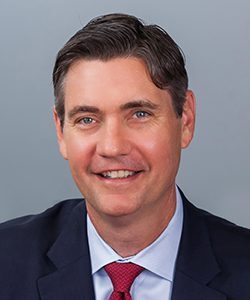Conduct a Google search on “millennials” and you’ll receive something in the order of 50 million results (in less than one second). Search for “millennial leaders” and the list is only slightly more manageable: 15 million results.
Everybody is talking and writing about millennials – and millennial leaders as the elders of this generation approach 40 and attain executive roles. Browsing through the Google results, it’s clear to see that the perceptions formed and opinions expressed are mostly guesswork at this point, even from millennials themselves. You won’t find a lot of science though a few good resources on millennials and millennial leadership include PwC and Deloitte survey reports as well as “Divergent Views/Common Ground,” a report published by the Conference Board surveying executives across generations at 14 large corporations.
My firm recently surveyed healthcare executives under the age of 40 about their career insights and aspirations. When participants were asked to rank the most important considerations in regards to their next job, they cited growth and learning opportunities, far more important than salary. This may be a function of age, but also of mindset. “Culture is paramount,” one respondent said simply.
“The flow of information from younger leaders to older ones is important.”
I spend a lot of time with the younger leaders around me. Those of us in the leadership and talent business need to be cautious about applying traits often associated with millennials (eg, tech savvy, fun-loving, lazy, empowered, entitled) and simply translating them into a template for how millennials will lead. One article I read describes millennial leaders as innovative, “hungry for success,” and willing to “challenge the hierarchy.” They “want to have fun.” These phrases could apply to any young generation of leaders that has come along.
The Conference Board report poses an interesting question in this regard: “As Millennial leaders age and are in the workforce longer, are they likely to develop views and attitudes about themselves and the world that are more closely aligned with those of previous generations?” It’s a good point—our report, for instance, found that millennial leaders in healthcare place low priority on salary and compensation. I wonder if this will change as they age.
How can CEOs and their organizations best support and prepare millennials to lead? Let me share a few ideas:
Listen to what millennial leaders have to say. The flow of information from younger leaders to older ones is important. For example, that millennial leaders use and understand technology much more than their older peers is a given. It is one key reason that reverse mentoring has become popular in professional environments.
Facilitate their career passions. Deloitte’s report notes how millennials feel empowered to create change “through their employers,” and it seems a safe bet that millennial leaders will seek to leverage their organizations to make a difference in society, to broaden ideas of corporate social responsibility beyond what they have been in the past.
Give meaningful responsibilities. Provide opportunities to influence in areas such as marketing and branding, client communications, and digital strategy that play to millennial leaders’ instincts even if they formal experience in these areas.
Don’t jump to conclusions. Let’s keep our eyes on this topic. There are a lot of assumptions being made about how millennials will lead but (to use a phrase from generations past) the proof is in the pudding.







